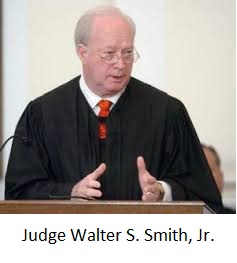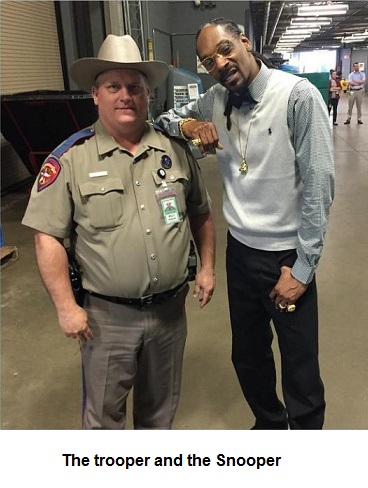If you thought the drunken debauchery of former U.S. District Judge Walter S. Smith, Jr. of Waco, Texas was old news, think again. A motion filed this morning by a federal death-row inmate asks the court to set aside his sentence  on the grounds that the alcoholic judge was too impaired to pass judgment.
on the grounds that the alcoholic judge was too impaired to pass judgment.
In the motion filed by attorneys Robert C. Owen of Northwestern Law School and Asst. Public Defender John R. Carpenter of Tacoma Washington on behalf of Brandon Bernard, they cite records from a judicial misconduct complaint that I filed against Smith in 2014, including the deposition testimony of a former deputy clerk who says she was sexually assaulted by Smith in the federal courthouse in 1998 while he was drunk (I have uploaded the motion’s evidentiary exhibits below). Bernard was sentenced to death for his role in the 1999 murders of Todd and Stacie Bagley, a married couple who served as youth ministers for a church in Iowa.
In the interest of full disclosure, I am a pro bono co-counsel for one of Bernard’s co-defendants in the murder cases. Although I normally do not practice criminal law, and I certainly do not dispute the horror of the Bagley murders, I happen to think that defendants have a right to be sentenced by a judge who is not drunk. Is that really such a radical idea? … Read more

